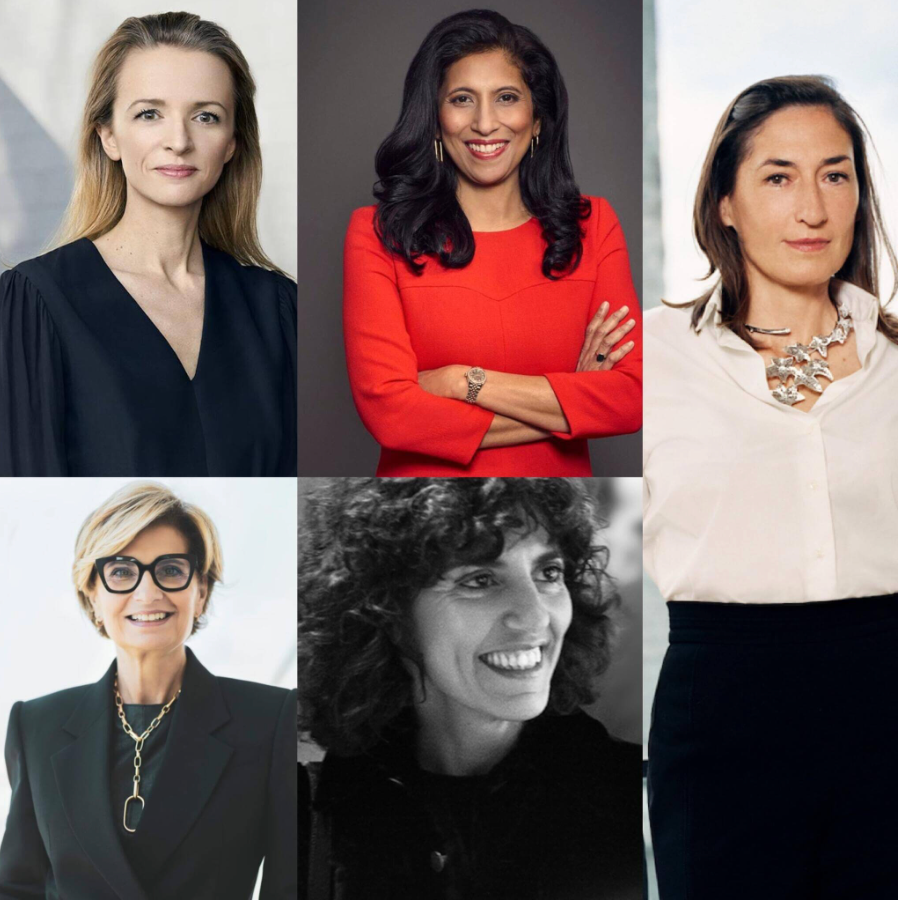Five Female CEOs in Luxury Discuss Their Leadership Approaches
- Zara Zhuang
- May 7, 2023
- 3 min read
On this International Women’s Day, we highlight five influential women CEOs in the luxury sector, focusing on their impact and leadership philosophies.

Women represent only 74 of the CEOs of the 500 highest-grossing corporations in the United States, equating to 15 percent, however globally, this percentage diminishes to 4.8 percent among the Global 500. The small cohort exemplifies significant advancements in corporate leadership today, and their heightened visibility—due to their limited numbers—results in these leaders symbolizing a cause greater than themselves. This is an overview of five influential women CEOs in the luxury sector and their exercise of power.
Delphine Arnault, Dior

Earlier this year, Bernard Arnault, the proprietor of LVMH, appointed his eldest offspring as the head of Christian Dior. This follows her 2019 appointment to the LVMH executive committee, making the younger Arnault the youngest individual to achieve this position.
However, Arnault stated, “good leadership is genderless,” during an interview last year with her alma school, EDHEC Business School. “Effective leaders possess numerous common characteristics: they exhibit a robust strategic vision, unwavering optimism, open-mindedness, forward-thinking, and empathy towards the needs of their collaborators and customers.” Gendering leadership is unproductive. The promotion of gender equality in senior management is crucial. Furthermore, to enhance diversity and representation within our staff. Diversity is not only a significant source of complementary skills and resources, but it also serves as a powerful catalyst for creativity, innovation, and performance.
Sabina Belli, Pomellato

Since 2015, Sabina Belli has served as the CEO of Pomellato Group, marking her as the first female CEO of the company. She has prioritized advocating for women's rights through corporate activities as a defining characteristic of her term thus far. In an exclusive interview with GRAZIA Singapore, she identifies as a pragmatic individual and advocates for the efficacy of "doers." “[Doers] convert every aspiration, action, and obligation into a tangible deed.” In the realm of business, inside a team, being a doer signifies being a reliable individual,” she says.
This pertains to collaboration: significant objectives are invariably accomplished with partners. I have discovered throughout my career that there exists an alternative approach to leadership and management. My methodology has consistently been inclusive, as collaboration enhances our perspectives and enables us to confront issues constructively. This occurs in both professional and familial settings.
Hélène Poulit-Duquesne, Boucheron

Since her appointment as CEO of the prestigious jewellery maison in 2015, Poulit-Duquesne forms a powerful all-female leadership tandem alongside Boucheron’s Creative Director, Claire Choisne.
“Initially, possessing a vision is essential. Subsequently, vigor and enthusiasm to motivate and involve the teams. Ultimately, kindness is essential: exhibiting respect, humility, empathy, and friendliness towards all individuals, irrespective of their identity. "Kindness is not equivalent to weakness," stated Poulit-Duquesne in a previous interview. “I also believe that exceptional leaders establish a protective environment for their team members.” An individual who feels secure may articulate themselves and be confident in their acceptance, leading to workplace happiness, engagement, and productivity.
Leena Nair, Chanel

A 30-year veteran of Unilever was appointed to manage Chanel in December 2021, becoming the youngest CEO of the maison and demonstrating that CEOs from consumer goods backgrounds are not at a disadvantage in managing premium brands. The human resources specialist additionally hosts a podcast series featuring interviews with prominent figures from diverse disciplines.
She informed ETPrime, part of the Economic Times of India, regarding the invaluable leadership lesson she acquired while being trapped in the Taj Hotel during the 2008 Mumbai terror assault. I recall the bravery of the girl who was guiding the personnel and the tourists. She exhibited significant situational leadership by seeking hiding spots for us, providing us with water throughout the night, and attempting to relay any information she could obtain,” she recounted. “She exhibited remarkable tranquility and poise.” I discovered that leadership is situational; seniority is irrelevant, and the crucial factor is the willingness to take initiative.
Francesca Bellettini, Saint Laurent

The ex-Goldman Sachs investment banker held positions at various Kering Group firms, including Gucci and Bottega Veneta, before assuming leadership at Saint Laurent in 2013. Bellettini embraces a collaborative leadership style, shown in her cooperation with Saint Laurent’s artistic director, Anthony Vaccarello, whom she referred to as her “adventure partner” in an interview with FashionNetwork.com.
“Vaccarello is the primary individual I will consult when faced with significant decisions within the company, irrespective of their business implications.” Our relationship is entirely founded on trust and respect. I do not possess the characteristics of a CEO who would exert control, whether directly or indirectly, on Vaccarello's job. Such an occurrence would incite dread, which constitutes one of the foremost challenges in the fashion industry,” she stated.
It is excessively simplistic to disparage those who are distinct. I advocate for freedom of expression, appreciate diversity, and abhor uniformity. I am not seeking what is politically correct. Puritanism is inherently linked to standardization, and I believe we must avoid it.










Comments